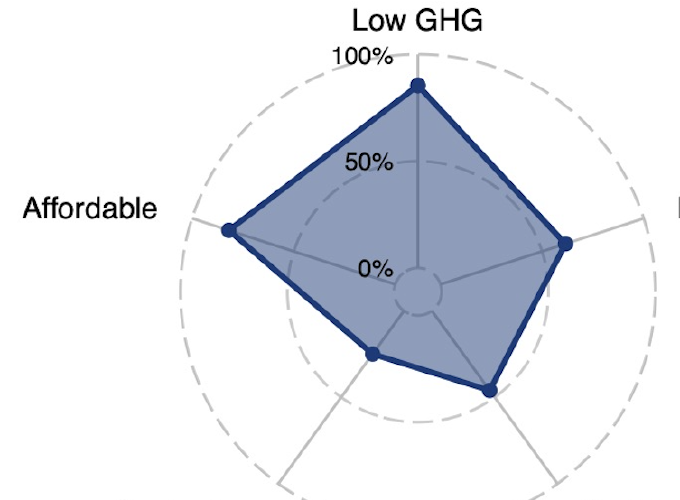
Navigating sustainability and health trade-offs in global seafood systems

Navigating sustainability and health trade-offs in global seafood systems
Seafood is expected to play a key role in improving access to healthy diets while providing food products with relatively low rates of greenhouse gas emissions. However, both nutrients and carbon footprints vary among species and production methods, and seafood consumption is further influenced by price and consumer preference, such that it is unclear which species are best placed to provide low-carbon nutritious seafood. Here, we compare the nutrient content and ‘farm-gate’ greenhouse gas emissions of 106 fished and farmed seafood products globally and, using seafood production data, assess the nutritional value, carbon emissions, sustainability, affordability, and availability of seafood available to UK consumers. Most seafood products are more nutritious and emit lower greenhouse gases than terrestrial animal-source foods. Among seafoods, small pelagic fishes and bivalves met recommended intakes for 3-4 essential dietary nutrients at the lowest emissions, whereas beef and lamb had the highest emissions per recommended nutrient target. For seafood products relevant to UK markets and consumers, Atlantic mackerel had the highest availability (landings) of all wild-caught UK seafood and lowest carbon footprint of all finfish, with one fillet portion exceeding recommended intakes of five nutrients (iodine, selenium, omega-3 fatty acids, vitamins B12 and D). We found that price and sustainability of UK seafood, both factors in consumer demand, had considerable trade-offs with nutrients, carbon footprint, and availability. Farmed salmon, for example, were produced in large volumes but were relatively more expensive and less nutritious than other seafood, whereas highly nutritious, low-carbon farmed mussels had limited production volumes. The UK’s seafood system is therefore not currently optimised to produce nutritious, low-carbon seafood in large amounts. Policies that promote local consumption of affordable species already produced in high volumes, such as mackerel, could improve intakes of nutrients that are deficient in the UK population, at relatively low environmental cost.